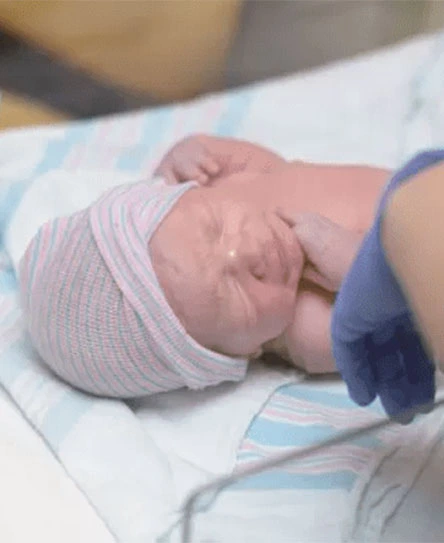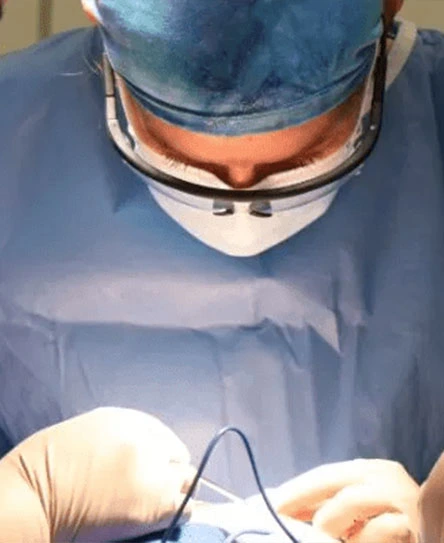904-309-6500Call Us today for Help
Savannah, GA Surgical Errors Lawyer
Savannah, GA Surgical Errors Attorney
A surgery usually comes with some inherent risk, and, unfortunately, not all surgeries bring the beneficial results that you hope for. While not all surgical errors or injuries are the result of malpractice, some are. When you or a loved one is injured because of a medical professional’s failure to take proper care, you may be able to file a claim to recover damages. A Savannah, GA, surgical errors lawyer can help you secure the most beneficial outcome to your claim.
People rely on their medical professionals for healthcare. Many medical providers take the necessary care when treating their patients and understand the responsibility they carry. Unfortunately, this is not true of all providers, and some are careless. This can cause significant harm to their patients, and those patients deserve compensation for their damages.

Representing Injured Patients in South Georgia
When you suffer a painful or even disabling injury after a surgical error, you need to obtain caring and effective legal representation. At Spohrer Dodd Trial Attorneys, our team has decades of legal experience, with more than 230 years of combined experience across all our attorneys. We have significant experience in medical malpractice cases, including:
- Surgical errors
- Anesthesia errors
- Birth injuries
- Emergency room malpractice
- Prescription errors
We know how stressful and traumatic these injuries can be for you and your loved ones. We work hard to understand the specifics of your case, investigate the surgery, and help you make a decision about how you can obtain compensation. There are several unique requirements in medical malpractice cases that make them much harder than other personal injury lawsuit cases. Our team has the resources and experience to help you secure the compensation you need to recover.
Understanding Medical Malpractice Claims for Surgical Errors
Because there is an accepted risk level with a surgical procedure, several elements must be present and provable for a successful medical malpractice claim. Failure to inform a patient of the potential risks of a surgery is also a form of malpractice.
The first thing you must prove in a medical malpractice case is that the medical provider owed you a duty of care. When there is an existing doctor-patient relationship, and the doctor agrees to give you medical care, they owe you a duty of care.
One of the required elements to prove a medical malpractice case is that the medical provider failed to meet the standard of care set by the industry. Failing to meet or deviating from the expected standard of care without reason may be considered malpractice. The industry standard of care is determined based on expected treatment, and deviations are only for unusual circumstances.
You must be able to prove that a medical provider failed to meet the standard of care and that this failure directly caused your injury. A medical provider may make mistakes, but if you suffered no actual harm, you likely do not have a claim.
Common Types of Surgical Errors in Malpractice Claims
Some of the most common types of surgical errors include:
- Anesthesia complications, including administering too little or too much
- Perforating or cutting an organ, nerve, or other tissue in the body
- Foreign objects, such as tools, sponges, materials, or other items left in the body cavity after surgery
- Operation on the incorrect part of the body
- Failure to practice proper hygiene before surgery
- Fatigue during operation
While some of these errors and injuries may have immediate consequences, some may take months or years before they are discovered.
What Compensation Is Available in a Surgical Error Claim?
If all elements of a malpractice claim are successfully proven, you have the legal right to recover all damages resulting from your injuries. These include:
- All medical bills, both past and future
- Income lost during recovery
- Lost earning capacity
- Pain and suffering damages
Economic damages have no cap, as they reflect the actual financial damages you suffered. Pain and suffering damages are noneconomic damages, which are capped. If the claim is against a singular facility or provider, the cap is set at $350,000. If multiple facilities or providers are at fault, the cap is set at $700,000. Your attorney in Savannah, GA can help you determine the true value of your claim.
FAQs
Q: What Is Considered a Surgical Error?
A: A surgical error occurs when a surgeon, nurse, anesthesia administrator, or another medical provider fails to uphold a standard of care during a surgical procedure. Surgical errors include:
- Operating on the wrong part of a patient’s body
- Operating on the wrong patient
- Leaving tools or foreign objects at the surgery site
- Causing internal damage
Surgeries have inherent risks, and a patient should be aware of these risks. Failure to obtain informed consent from a patient is also a form of surgical error.
Q: What Are the Consequences of Surgical Errors?
A: Injuries and long-term damage from surgical errors include:
- Internal bleeding
- Nerve damage
- Infection and sepsis
- Scarring
- Organ damage
- Brain injuries
- Disabling injuries
- Fatal injuries
When a medical provider fails to ensure a professional standard of care, and this causes a surgical error, the provider could face medical malpractice claims for personal injury or wrongful death. This can hold the provider accountable for their carelessness and the injury they caused their patient.
Q: How Long Do You Have to Sue a Doctor After Surgery in Georgia?
A: Georgia’s statute of limitations for personal injury medical malpractice claims is 2 years from the date of injury or the date of death. If an injured party was not aware that they were injured immediately following surgery, they have 2 years from the date they discovered the injury or error or from the date they should have noticed it.
Even this rule has limitations, as no claim can be filed 5 years after the date when the injury was sustained. If you are unsure whether your claim is still valid, discuss your situation with a qualified surgical error attorney.
Q: How Do You Prove Surgical Error?
A: A surgical error can occur without medical malpractice. There are inherent risks to many surgeries, so medical providers can act in the expected standard of care and injuries can still occur. To have a valid medical malpractice claim for a surgical error, the following must be true:
- There is an existing doctor-patient relationship.
- The medical treatment during the surgery was not to the professional standard of care.
- This failure to meet the duty of care was the cause of the injury.
The injured individual could then recover damages.
Surgical Injury Attorneys in Southeast Georgia
Contact Spohrer Dodd Trial Attorneys to learn how we can help with your Savannah medical malpractice claim.





